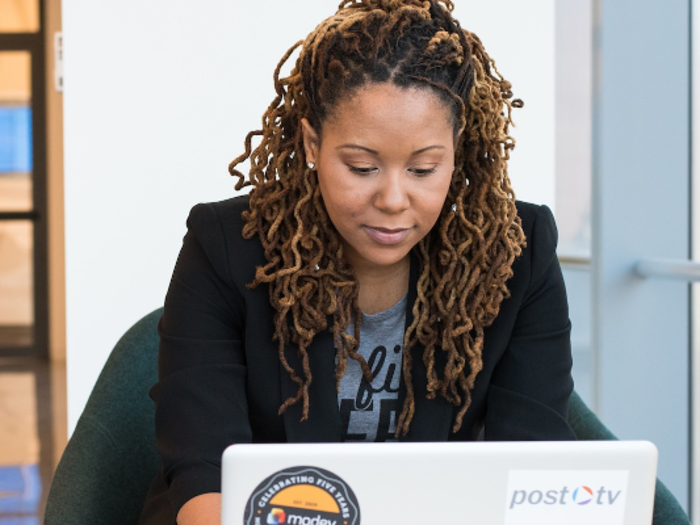- Home
- slideshows
- miscellaneous
- A 23-year-old engineer who landed an Amazon job right out of college reveals how 7 soft skills helped her succeed in the workplace
A 23-year-old engineer who landed an Amazon job right out of college reveals how 7 soft skills helped her succeed in the workplace
Confidence is one of the most important soft skills

But don't forget to be humble, either

Have you ever been told to avoid being the smartest person in the room? The idea behind that oft-repeated quote is that, even if you think you know everything, you still have a lot to learn — and other people can get you there.
Following that, "learn and be curious" is a key tenet at Amazon.
As Salzer said it's important for Amazon employees to "have an intellectual humility where you do know a lot, but you are open to being proven wrong."
"If you think you're the smartest person in the room and are not open to learning new things, then that's not something that fits at Amazon," Salzer said.
There are a few ways to get a conversation started that allows you learn something new.
Communications expert Danny Rubin recommended reading up online on the background of who you'll meet before an interview or meeting. Then ask them something like, "I see you spent 15 years as a project manager at Honda. What was it like to work there?"
Remember to always listen

Customer obsession is one of Amazon's leadership principles, and it's truly important for Salzer's work.
"We focus on Amazon's customers and always working backwards from what they need and what they're doing," Salzer said.
To do that, look to the ever-important soft skill of listening: Be open to new opinions, resist jumping to judgement, and pay full attention when others are speaking.
And if you come across a client or a customer (or anyone else, for that matter) who differs from you on an idea, try this phrase from authors Douglas Stone and Sheila Heen in "Thanks for the Feedback: The Science and Art of Receiving Feedback Well":
"That's interesting. I would like to understand more about why we see this differently."
Understand the big picture

Knowing what your leadership has in mind for your team and the company as a whole can help you in your daily tasks.
So, Salzer said she reads Amazon founder Jeff Bezos' letter to the shareholders each year and letters from previous years.
These letters show what Bezos has learned about Amazon and its businesses that year, and what they ought to focus on in the future.
She especially enjoys reading about the beginnings of her employer, Amazon Web Services, which launched in the early 2000s.
"It's a good way understand pieces of the business and what the focuses are," she explained.
Get involved in company groups — they might just help your career, too

Along with having confidence in her technical abilities, Salzer has succeeded in the public speaking portions of her job in part because she's joined Amazon's Toastmasters group, an international nonprofit dedicated to public speaking training.
It's not enough to know complicated technical concepts — you'll need to explain them to others, too

Communication is a key soft skill, as Business Insider previously reported. While it seems like a given, exchanging information clearly and effectively is crucial for a company to flourish.
Salzer said she "constantly" learns new technical concepts, and then has to explain them to Amazon's customers.
But these are often complicated, and her clients might not be fellow engineers.
"A big piece of (my role) is talking with customers and being able to explain highly-technical concepts with them very simplistically," Salzer said.
The ability to communicate clearly isn't universal.
Learn how to document your progress

Every time you finish a project, take a few minutes to write down what you did, how you accomplished it, and how it helped people, Salzer said.
"I feel like when I was in college I really didn't do that as much," Salzer said. "I would turn in an assignment and then I was kind of done with it or didn't really keep a list. But that's something that's really important in your career."
Career experts agree with Salzer. Business Insider contributor John Boitnott, who is an adviser for Startup Grind, wrote that a file of your accomplishments can help "brighten a bad day," and help you build your case for a promotion or raise.
Popular Right Now
Popular Keywords
Advertisement